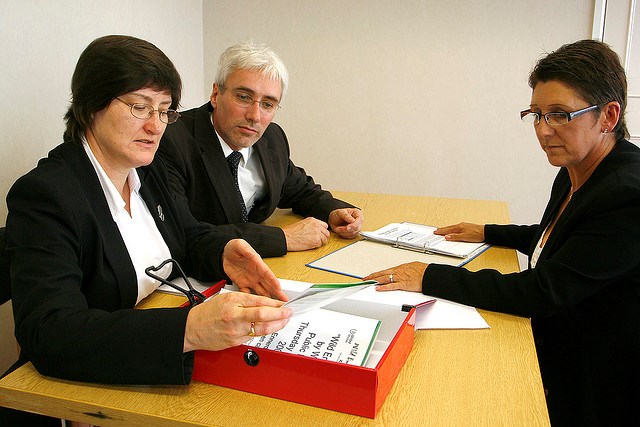Great interview questions for special needs teachers

What makes a good SEND teacher and how can you spot one at an interview? These questions should help…
What would you do if a student was misbehaving or being disruptive?
You should ask this question because SEND students often require a more individualised approach than students in mainstream settings and blindly following the school behaviour policy may not always be appropriate. You will want to find out if your prospective new hire understands this and how they would respond. When they answer, you should listen out for examples of how they have handled similar situations in the past and how this fits in with the ethos of your setting. You should be on the lookout for an understanding that one size does not fit all and that there might be a root cause or trigger in play where challenging behaviour is concerned. Bonus points if they talk about a need to consult the SENCO or an EHCP for tips on how to effectively manage individual students.
How would you assess the students’ learning and behavior progress?
This is a useful question because many SEND children are not able to be assessed using standardised testing. Instead, your interviewee will need to explore alternative assessment methods and will ideally use this opportunity to ask about what assessment methods you use in your setting. Listen out for experience of coordinating assessment data with other teachers or members of staff as they may have valuable information which can form an important part of any ongoing/casual or formative assessment.
What are your preferred SEND teaching methods?
With this question, you want to know that your candidate is aware of a range of established teaching methods and recognises how these vary from mainstream approaches. Specifically, their answer should mention individualised education plans (IEPs) and discuss how strategies will differ from student to student depending on the individual. You should be listening out for answers detailing the need for goal setting and modifying teaching methods to suit the needs and ability of each student.
Tell me about a lesson that didn’t go according to plan and how you adapted it to improve the outcome.
This is a useful question because it pushes your applicant to talk about perceived failure and how they handle such scenarios. Be wary of teachers who say that this has never happened to them – as an ex-teacher myself I am all too aware that your best laid plans will often fall apart before your eyes! An ability to notice when this is happening and adapt your lesson accordingly is essential. Answers may mention how the teacher has collaborated with other staff members after the fact to ensure that future learning materials are pitched appropriately. It may also be useful to ask how such situations made your applicant feel – if they are easily stressed when things don’t go to plan, then you may not wish to consider them for classes where this is likely to happen on a regular basis.
What are some creative activities you’ve planned that your students have loved?
Making learning fun for both staff and students is an important part of being an effective teacher. It helps to build trust, rapport and an enjoyment of coming to school – all very important things! If examples provided are limited to events which are organised by the wider school community such as World Book Day or school productions, try to encourage your applicant to provide examples from their personal lesson plans. Top marks if they mention subjects or topics which are usually harder to bring to life and make fun such as mathematics or handwriting. Explore how they made it fun and how they knew the children had enjoyed it. You might get some rather interesting insights.
Tell me about a scenario where you had to deal with a difficult parent. How did you address the situation?
Establishing supportive and healthy relationships with the students’ parents is almost as important as fostering good relationships with the students themselves. Parents may not always agree with the teacher’s methods, so avoiding friction is important. At the same time, teachers must be able to stand up for themselves and be advocates for their students. Listen out for answers which demonstrate a willingness to work with families and a respect for the opinions of others involved in the care of their students whilst being able to explain and defend any actions they feel are important, even if not agreed with. Balance is key with this one!
What got you interested in working with special educational needs and disabilities?
Understanding what motivates a candidate can help you gauge their fit. For example, a candidate may mention that they have family members or friends who have special needs, which may better equip them for the pressures of the job. Or they may come from another profession or have voluntary experience in the sector if they have no direct SEND teaching experience. You are essentially looking for understanding and empathy – not candidates who think this will be an “easier ride” than a mainstream classroom teaching job.
How do you keep track of your responsibilities?
Keeping track of the needs and evolving education plans for a full class of students can be tricky. This is why you will need teachers with excellent organisational skills. Candidates will have different methods for organising information and tasks, but the best ones will be able to demonstrate a number of effective strategies. If they have an aptitude and an appreciation for diligent record keeping, they are likely to do a more effective teaching job. It is also worth exploring times when they were not as organised, what the outcome of this was and how they got back on track.
What do you think is the most difficult aspect of this job?
Careers in special educational needs and disabilities can be stressful. It’s important that candidates recognise this ahead of time, or it may be tough for them to handle the pressure. Explore how they manage stress or difficult situations such as the loss of a student with a life-shortening condition. Talk also about how they might manage their students when difficult situations arise and how they offer support. Listen out for signs of genuine concern for the children and how they might encourage positivity in the face of adversity.
Do you need help with SEND staffing?
If you’d rather let someone else do the hard work for you, why not consider using Axcis for your SEND staffing needs? We source, interview and vet all teachers and support staff fully so you don’t have to! Or if you’re a member of SEND teaching or support staff seeking a new role, why not register with Axcis and find out what jobs we have available to suit your needs?
